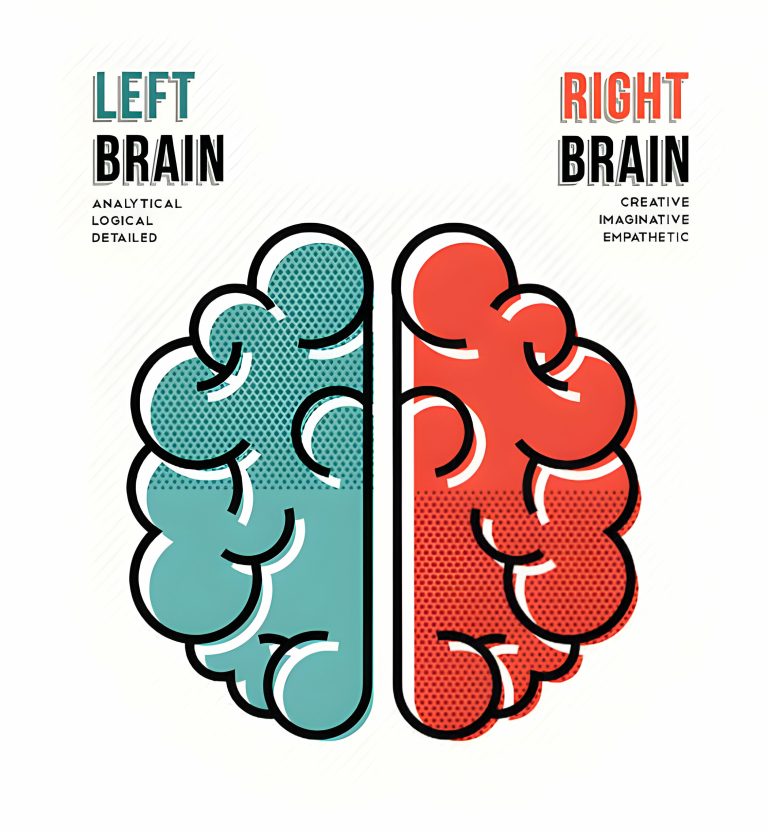Best Foods for A Healthy Brain and Improved Memory

Have you ever heard the term “brain food” and wondered what it actually means? Brain food refers to foods that are known to benefit brain health and cognitive function. These foods are packed with nutrients that can help improve memory, focus, and overall brain function. By incorporating these foods into your diet, you can give your brain the fuel it needs to function at its best.
When it comes to the best foods for a healthy brain and improved memory, there are several key players to keep in mind. Foods rich in omega-3 fatty acids, such as fatty fish like salmon and trout, are known to support brain health and cognitive function. Additionally, leafy green vegetables like spinach and kale are packed with antioxidants and nutrients that can help protect the brain from damage.
Another important category of brain-boosting foods includes berries, which are high in antioxidants that have been shown to improve memory and cognitive function. Nuts and seeds, which are rich in vitamin E, are also great for brain health, as they can help protect the brain from oxidative stress. Finally, whole grains like oatmeal and brown rice are an excellent source of energy for the brain, providing a steady supply of glucose that the brain needs to function optimally.
In the next part of this article, we will delve deeper into each of these categories of brain food, exploring the specific nutrients and benefits they provide for brain health and improved memory. By understanding the science behind these foods and how they can support your cognitive function, you can make informed choices about what to include in your diet for a healthy brain. So sit back, relax, and get ready to discover the best foods to nourish your brain and boost your memory.
- Eating fish rich in omega-3 fatty acids like salmon can support brain health and improve memory.
- Darker colored berries such as blueberries and blackberries are high in antioxidants which can protect the brain from oxidative stress.
- Choosing whole grains like quinoa and brown rice over refined grains can provide a steady supply of energy to the brain.
- Incorporating nuts and seeds into your diet can supply essential nutrients like vitamin E, which is beneficial for brain health.
- Consuming dark leafy greens like spinach and kale can help improve cognitive function and protect against age-related decline.
- Adding turmeric to dishes can enhance memory and cognitive function due to its anti-inflammatory properties.
- Drinking green tea regularly can improve brain function and boost memory retention thanks to its high levels of catechins.
- Including dark chocolate in moderation can enhance memory, focus, and overall cognitive function due to its flavonoid content.
- Staying hydrated by drinking plenty of water throughout the day is essential for optimal brain function and memory retention.
Top Brain Foods for Enhanced Memory and Cognitive Function
When it comes to improving memory and maintaining a healthy brain, incorporating brain foods into your diet can be incredibly beneficial. Brain foods are those that contain nutrients and compounds that support brain function, cognitive abilities, and memory retention. By including these foods in your meals, you can boost your brain health and overall cognitive performance.
Exercise for Cognitive Function
Regular physical activity has been shown to improve cognitive function and overall brain health. Activities like aerobic exercise, weight training, and yoga can all contribute to increased blood flow to the brain, which helps to boost memory and focus. Additionally, exercise releases endorphins that can improve mood and reduce stress, both of which are important factors in maintaining cognitive function.
Brain-Boosting Supplements
There are various supplements on the market that claim to improve brain function and memory. Some popular options include omega-3 fatty acids, vitamin E, and ginkgo biloba. While these supplements may have potential benefits, it’s important to consult with a healthcare provider before adding them to your daily routine to ensure they are safe and effective for your individual needs.
Mental Stimulation
Engaging in mentally stimulating activities can also help to improve brain function and memory. Activities like puzzles, reading, and learning new skills can all help to strengthen neural connections and improve cognitive function. Additionally, socializing with others and engaging in intellectual conversations can help to keep the brain sharp and active.
Quality Sleep
Getting enough quality sleep is crucial for maintaining good brain health. During sleep, the brain consolidates memories and processes information, making it essential for cognitive function. Poor sleep can lead to cognitive decline and memory problems, so it’s important to prioritize a consistent sleep schedule and create a relaxing bedtime routine to ensure you are getting the rest your brain needs to function at its best.
What are the best foods for a healthy brain?
Some of the best foods for a healthy brain include fatty fish like salmon, sardines, and trout, which are rich in omega-3 fatty acids that are essential for brain health. Other great options are blueberries, nuts and seeds, avocados, and dark leafy greens such as spinach and kale. These foods are packed with antioxidants, vitamins, and minerals that support cognitive function and memory.
How can improving my diet help boost my memory?
Improving your diet can help boost your memory by providing your brain with essential nutrients it needs to function at its best. Certain nutrients like omega-3 fatty acids, antioxidants, and vitamins are known to support brain health and improve cognitive function. By including foods rich in these nutrients in your diet, you can enhance your memory and overall brain health.
Are there any specific superfoods that can help improve memory?
Yes, there are specific superfoods that can help improve memory. Some examples include turmeric, which contains curcumin that has been shown to have neuroprotective properties, and broccoli, which is rich in antioxidants that support brain health. Other superfoods for memory include pumpkin seeds, walnuts, and berries, which are all packed with nutrients that can enhance cognitive function and memory.
Can certain foods help prevent cognitive decline as we age?
Yes, certain foods have been found to help prevent cognitive decline as we age. Foods rich in antioxidants, omega-3 fatty acids, and vitamins like B12 and D have been shown to support brain health and reduce the risk of cognitive decline. Including these foods in your diet can help keep your brain sharp as you age and lower your risk of conditions like Alzheimer’s disease.
How can I incorporate these brain-boosting foods into my daily diet?
You can incorporate brain-boosting foods into your daily diet by making simple swaps and additions to your meals. For example, try adding a handful of nuts or seeds to your morning oatmeal or salad, or include a serving of fatty fish like salmon or mackerel in your weekly meal plan. Snack on berries or avocado instead of processed snacks, and incorporate dark leafy greens into smoothies or stir-fries. Small changes like these can help you reap the benefits of brain-boosting foods on a daily basis.
Are there any foods I should avoid for optimal brain health?
While there are many foods that can support brain health, there are also some that can have a negative impact on cognitive function. Processed foods high in added sugars and unhealthy fats should be limited, as they can contribute to inflammation and oxidative stress in the brain. Additionally, excessive alcohol consumption can impair memory and cognitive function over time. It’s important to maintain a balanced diet and limit your intake of these less healthy foods for optimal brain health.
Can drinking enough water help improve brain function?
Yes, staying properly hydrated by drinking enough water can help improve brain function. Dehydration can impair cognitive function, memory, and focus, so it’s important to drink an adequate amount of water throughout the day. Keeping a water bottle handy and sipping on water regularly can help ensure that your brain is functioning at its best.
Do I need to take supplements to support my brain health, or can I get all the nutrients I need from food?
While supplements can be helpful in certain cases, it’s generally best to focus on getting the nutrients you need from food first. A balanced diet rich in brain-boosting foods can provide you with the essential nutrients your brain needs to function optimally. If you have specific concerns or conditions that may require supplementation, it’s best to consult with a healthcare professional to determine the best course of action for supporting your brain health.
How soon can I expect to see improvements in my memory after incorporating brain-boosting foods into my diet?
The timeline for seeing improvements in memory after incorporating brain-boosting foods into your diet can vary from person to person. Some individuals may notice improvements in memory and cognitive function relatively quickly, while others may take longer to see noticeable changes. Consistency is key when it comes to supporting brain health through diet, so it’s important to make these foods a regular part of your daily eating habits to maximize their benefits for memory and overall brain function.
Are there any potential side effects or risks associated with increasing intake of brain-boosting foods?
Increasing your intake of brain-boosting foods is generally safe and beneficial for overall health. However, some individuals may experience digestive issues or allergies to certain foods, so it’s important to listen to your body and make adjustments as needed. If you have any concerns or medical conditions that may be impacted by changes in your diet, it’s best to consult with a healthcare professional for personalized guidance on incorporating brain-boosting foods into your eating plan.
Final thoughts
The brain food we consume plays a crucial role in maintaining cognitive function and improving memory. Foods rich in antioxidants, omega-3 fatty acids, and vitamins are essential for brain health. Berries, fatty fish, nuts and seeds, leafy green vegetables, and whole grains are all excellent choices for promoting a healthy brain.
Incorporating these brain foods into a balanced diet can have a significant impact on cognitive function, memory retention, and overall brain health. It is important to prioritize these nutrient-rich foods to support optimal brain function as we age. Additionally, staying hydrated and avoiding excessive amounts of sugar and processed foods can further contribute to a healthy brain.
Remember that a healthy brain diet is not just beneficial for memory and cognitive function, but also for overall well-being. Making conscious choices about the foods we eat can have long-lasting effects on brain health and quality of life. So, next time you reach for a snack or plan a meal, think about including some brain food to nourish your most important organ. Your brain will thank you for it in the long run.




